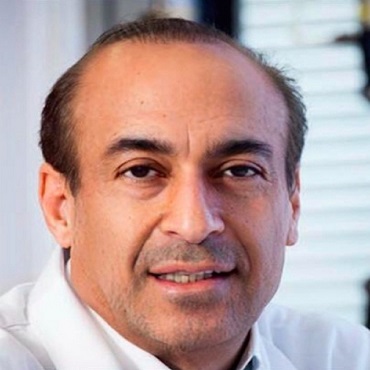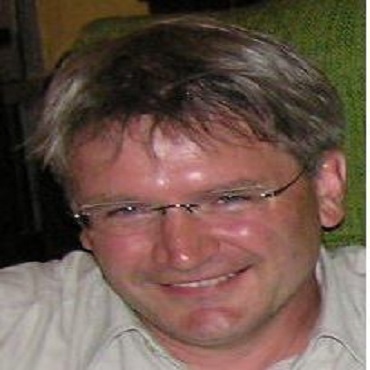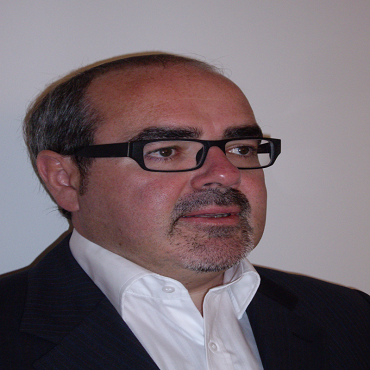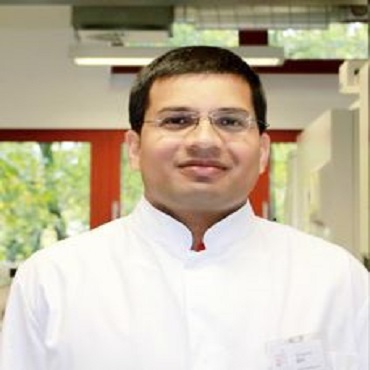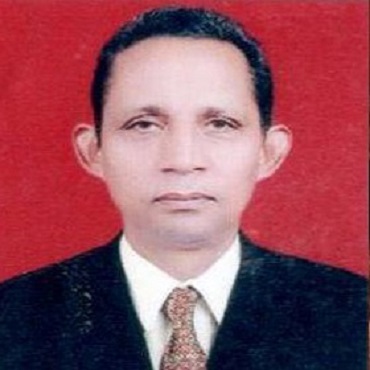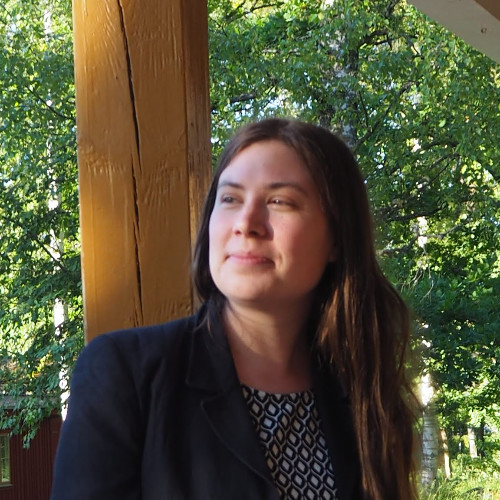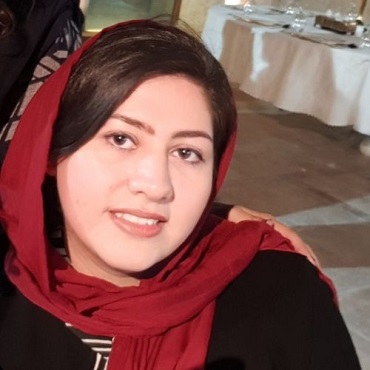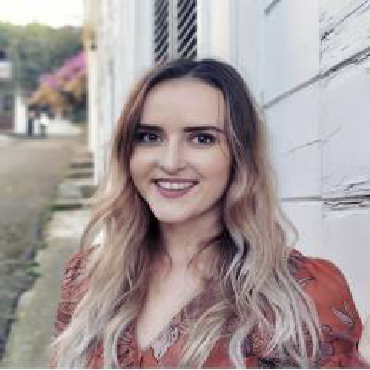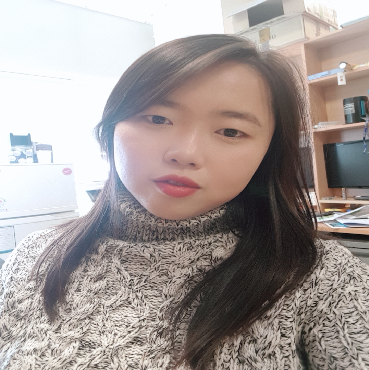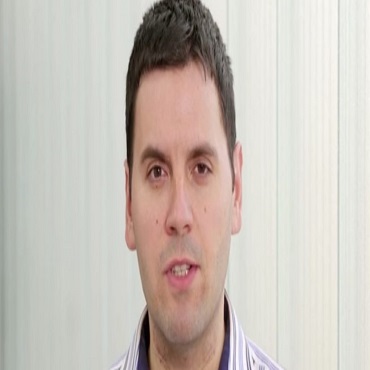
Tissue Engineering 2019
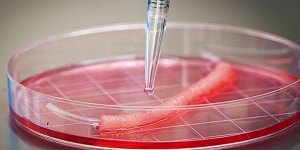
Theme: Novel Perspectives on Tissue Engineering
Tissue Engineering 2019 invites participants from all over the world to meet its global experts. The prestigious conference is scheduled during on 14-15 October, 2019 in Singapore city, Singapore. The theme of the conference is “Novel Perspectives on Tissue Engineering". Being a pioneer in this field Meetings International (Meetings Int.) produces high quality conferences, meetings, symposia and workshops in all major fields of science, technology and medicine. The key strategic objective of conferences is to create a communication bridge in science and medical research between academia, and industry. Tissue Engineering focus on building a long-term partnerships with our speakers, delegates and sponsors thus ensuring that our programs are not only relevant but are also connected to the real world limitations, challenges and opportunities which faced by our customers. The aim of the meeting is to provide a platform to academicians, researchers, industrial expertise and practitioners from multiple disciplines to debate and deliberate on social changes which are encompassed by innovation and technology. Tissue Engineering Conference focuses on understanding the ability to generate living tissue ex vivo/in-vivo for various therapeutic applications like replacement therapy, through materials development, biochemical manipulations, cell culture, and genetic engineering.
Working under the theme “Novel Perspectives on Tissue Engineering” we sought to bring together a unique international mix of large and medium medical and clinical research and diagnostic companies, leading universities and research institutions under one roof. It is a perfect platform to share experiences, foster collaborations across industry and academia and evaluate emerging innovations around the globe. Tissue Engineering Conference mainly focuses on spreading the emerging techniques related to tissue engineering and regenerative medicine.
Importance and scope of Tissue Engineering
Tissue engineering is a scientific field which alarmed with the progress of biological entities capable of substituting diseased or damaged tissue in human body. The word tissue engineering was introduced in the late 1980s. At the early 1990s the consciousness of engineering application for the reparation of biological tissue brought speedy growth in tissue engineering field with the latent to revolutionize significant areas of medicine.
Tissue engineering includes biological components, like cell and growth factors, using engineering principles and synthetic materials. Substituent tissues can be created by seeding human cells on scaffolds, which may be prepared from collagen or from a recyclable polymer. The scaffolds are then allowed to incubate in mediums containing growth factors, which encourage the cells to grow. As cells spread across the scaffold, the substituent tissues are formed. This tissue can be successfully implanted into the human body.
Why to Attend???
Join your peers around the world focused on tissue engineering and related advances. It is a golden opportunity to reach the largest assemblage of participants from the Tissue Engineering and Regenerative Medicine departments, scientists, researchers, doctors, medical colleges, healthcare professionals, founders and employees, hospital and health services, clinical investigators, pharmaceutical companies, laboratory members, training institutions, support organizers, data management companies and make a splash with a new research work on tissue engineering. The two days event provides name recognition with world-renowned speakers, recent research and the newest updates in tissue engineering thus acting as hallmarks of this conference.
- Lectures from renowned speakers
- Keynote forums by prominent professors, doctors
- Open innovation challenges
- Poster presentations by young researchers
- Global networking sessions with 50+ countries
- Novel techniques to benefit your research
- Best platform for global business and networking opportunities
- Meet the editors of referred journals, society and association members across the globe
- Excellent platform to showcase the attest products and formulations in tissue engineering field
Target Audience:
- Biotechnologist
- Pharmacologists
- Academicians
- Physicians
- Academic Scientists
- Industry Professionals
- Diagnostic Laboratory Professionals
- Business Professionals
- Postdoctoral Fellows And Trainees
- Hospitals and Health Services
- Scientists and Researchers organizers
- Tissue Engineering Associations And Societies
- Undergraduate & Postgraduate Students
- Directors, Heads and Professors of Medicine departments
Annual Next-Gen Tissue Engineering & Regenerative Medicine Conference will be an encouraging moment to meet people in the experimentation field, herewith it takes pleasure in opening a doorway to encounter the ability in the field, young researchers and potential world-renowned speakers, the most recent approaches, tactics, and the current upgrade in the field of tissue engineering.
Tissue Engineering Conference will offer its participants with an unmatched attendee experience. In addition to the many scientific sessions and take-home case study examples, you will leave this event with many other evidence based practice from the workshops and symposiums arranged during the conference. We hope you all join us in Singapore in October.
Session-1: Tissue Engineering
It is an interdisciplinary field comprise of life sciences, bio-engineered materials and physiochemical factors which alters the health for betterment and personal satisfaction of individuals across the globe. It is a science of repair or replacement of damaged tissues or organs thus restoring the functioning of an organ. It employs natural or synthetic scaffolds to mimic the action of the human organs.
Tissue Engineering Conference | Regenerative Medicine Conferences | Stem cell Conferences | Tissue Science Conferences | Asia Pacific Conferences | Tissue Engineering Meetings | USA Conferences |
Session-2: Tissue Materials and Process
The therapeutic materials used for tissue engineering must not be toxic to the human biological system. These materials contains therapeutic agents and bioactive molecules which promotes tissue repair, it also provides tailored mechanical support, bone and tissue regeneration and many are also designed to encourage a controlled drug release, thus ensuring the therapeutic drug remains in the system for longer. The materials commonly used for these process includes biodegradable and bioactive polymers, ceramics and composites.
Tissue Engineering Conference | Regenerative Medicine Conferences | Stem cell Conferences | Tissue Science Conferences | Asia Pacific Conferences | Tissue Engineering Meetings | USA Conferences |
Session-3: Regenerative and Personalized Medicine
It is a novel field of therapeutic technique wherein personalized prescriptions or medications are provided to an individual. Pharmacogenomics and cellular therapy comprises together for the development of personalized therapy. The basis of regenerative medicines lies on the various forms of stems cells like, mesenchymal stem cells, pluripotent stem cells and embryonic stem cells which has a property of indefinite regeneration. Among the above mentioned the pluripotent stem cells are found to be a suitable candidate for personalized medicine.
Tissue Engineering Conference | Regenerative Medicine Conferences | Stem cell Conferences | Tissue Science Conferences | Asia Pacific Conferences | Tissue Engineering Meetings | USA Conferences |
Session-4: Scaffolds Used In Tissue Engineering
Biodegradability and biocompatibility are the most important features for a scaffold to be used in tissue engineering. The materials should contain sufficient porosity, a proper architecture and an adequate pore size are necessary to facilitate cell seeding and diffusion throughout the whole structure of both dividing cells and nutrients. Scaffolds are of excessive importance in clinical medicine, it is a forthcoming field and typically related with conditions involving organ disease or failure.
Tissue Engineering Conference | Regenerative Medicine Conferences | Stem cell Conferences | Tissue Science Conferences | Asia Pacific Conferences | Tissue Engineering Meetings | USA Conferences |
Session-5: Biomaterials and Bioengineering
The progressive evolution of bioengineered materials has led to a versatile field of study and has increased their utility for therapeutic purpose. Biomaterials have revolutionized the areas like bioengineering and tissue engineering for the development of novel approach to combat life threatening diseases. Together with biomaterials, stem cell technology is also mostly used to improve the existing healthcare facilities.
Tissue Engineering Conference | Regenerative Medicine Conferences | Stem cell Conferences | Tissue Science Conferences | Asia Pacific Conferences | Tissue Engineering Meetings | USA Conferences |
Session-6: Biopharmaceutical and Biomedicine
Medicine based on the application of the principles of the natural sciences and especially biology and biochemistry and the medical drugs produced using biotechnology process. It including proteins (antibodies), nucleic acids (DNA, RNA or antisense oligonucleotides) used for therapeutic or in vivo diagnostic purposes, and are produced by means other than direct extraction from a native (non-engineered) biological source.
Tissue Engineering Conference | Regenerative Medicine Conferences | Stem cell Conferences | Tissue Science Conferences | Asia Pacific Conferences | Tissue Engineering Meetings | USA Conferences |
Session-7: Bone and Cartilage Tissue Engineering
The tissue engineering technology has cantered on bone graft substitute for the engineering of mucoskeletal tissues, such as bone and cartilages. The primary concern of these substitutes to be used in bone grafting is biodegrability of the scaffolds. Currently tissue engineering strategies have included cell and gene therapy. Tissue engineering of musculoskeletal tissues is a rapid developing field. The availability of growth factors and the expanding knowledge base concerning the genetics and regulation of bone formation have developed new materials for tissue-engineering applications.
Tissue Engineering Conference | Regenerative Medicine Conferences | Stem cell Conferences | Tissue Science Conferences | Asia Pacific Conferences | Tissue Engineering Meetings | USA Conferences |
Session-8: Skin Tissue Engineering
The skin is the largest organ of the human body which serves as a protecting barrier to the environment and promotes hydration retention and thermal regulation. Extreme loss of skin may occur due to various forms of injury or illness which might result in an ample physiological imbalance and it leads to major disability or even death. Tissue-engineered skin (TES) alternates signify a logical beneficial option for the treatment of severe and all chronic skin injuries.
Tissue Engineering Conference | Regenerative Medicine Conferences | Stem cell Conferences | Tissue Science Conferences | Asia Pacific Conferences | Tissue Engineering Meetings | USA Conferences |
Session-9: Bioartificial Organs
Tissue or engineered devices incorporated into the human body for replacement of a natural organ, interfacing with natural tissue are known as bioartificial organ. It combines biomaterials and biological cells for full replacement of patient failure organs. The commonly engineered bioartificial organs are bioartificial kidney devices, combining biomaterials and kidney epithelial cells for improved blood detoxification, bioartificial pancreas devices, combining encapsulation of pancreatic cells for treatment of diabetes, bioartificial lungs for studying lung regeneration.
Tissue Engineering Conference | Regenerative Medicine Conferences | Stem cell Conferences | Tissue Science Conferences | Asia Pacific Conferences | Tissue Engineering Meetings | USA Conferences |
Session-10: Stem Cell Engineering (SCE)
The remarkable improvement in the field of stem cell research has set the foundation for cell based treatments of disease which cannot be cured by conventional medicines. The capability of self-renewal and segregate into other forms of cells signify stem cells as borderlines of regenerative medicine. Progresses in gene editing and tissue engineering machinery have permitted the ex vivo remodeling of stem cells grown into 3D organoids and tissue structures for personalized uses.
Tissue Engineering Conference | Regenerative Medicine Conferences | Stem cell Conferences | Tissue Science Conferences | Asia Pacific Conferences | Tissue Engineering Meetings | USA Conferences |
Session-11: Cancer Stem Cells
The idea that cancer is primarily driven by a smaller population of stem cells has important implications. They can divide and renovate themselves for long periods and are capable of give rise to specialised cells. They can therefore summarize tumour heterogeneity as they can be found in tumours. Research so far has proposed they also have multi drug and radiotherapy resistance. Hence there may be more similarities between cancer stem cells and normal stem cells.
Tissue Engineering Conference | Regenerative Medicine Conferences | Stem cell Conferences | Tissue Science Conferences | Asia Pacific Conferences | Tissue Engineering Meetings | USA Conferences |
Session-12: Novel Approaches in Guided Tissue Regeneration
Tissue engineering represents one of the most exciting advances in regenerative medicine. Guide Tissue Regeneration is defined as the procedures of attempting to regenerate lost periodontal structures through differential tissue responses. It lays emphasize on the development of both hard tissue as well as soft tissues of the periodontal supplement. With the help of GTR, 3-dimensional tissues that accurately integrate with a patient's body are been produced.
Tissue Engineering Conference | Regenerative Medicine Conferences | Stem cell Conferences | Tissue Science Conferences | Asia Pacific Conferences | Tissue Engineering Meetings | USA Conferences |
Market analysis
Tissue Engineering Conference is glad to invite you to the upcoming International conference on Annual Next-Gen Regenerative Medicine & Tissue Engineering Conference planned to be held at Singapore City, Singapore during October 14-15, 2019. The conference emphasizes the theme “Novel Perspectives on Tissue Engineering”. Focusing on the latest ideas and advances for tissue engineering conference welcomes the innovative strategies in the area of tissue engineering and regenerative medicine research and also proposes a unique opportunity for the explorers from all over the world to gather, share and perceive new scientific interactions upon the various perceptions of Tissue Engineering.
The highly growing price of organ replacement and more medical uses of 3D printing in tissue and organ regeneration are driving the international tissue engineering and regeneration market. Besides it, this technology is gaining acceptance due to its effectual products and reduced rejection rates. A modern advance in the field of regeneration surgical treatment, primarily stem cell research, is probable to offer novel opportunities for global tissue engineering and regeneration market. Some of the main companies dealing in Tissue engineering and regeneration market are Advanced Cell Technology, Integra Life Sciences, CryoLife, Biomimetic Therapeutics, Sanofi, StemCellsInc, Cook Biotech, Life Cell Kinetic Concepts, Arteriocyte and Bio Tissue Technologies.
In past four years, Tissue Engineering market size to maintained an average annual growth rate of 19.17% from 6500.00 million $ in 2013 to 11000.00 million $ in 2016, Market analysts believe that the next few years, Tissue Engineering market size will be further expand by 2021 , The market size of the Tissue Engineering will reach 24000 million $.
Why Singapore City?
Tissue building is a genuinely multidisciplinary field which applies the standards of life science, designing, and fundamental science to the advancement of practical substitutes which reestablish, keep up, or improve the capacity of human tissues. Singapore city includes in present day confinement and refined systems of a human cells including fibroblasts, keratinocytes, chondrocytes, osteoblasts, endothelial and mesenchyme foundational microorganisms give the premise to tissue designing. Normally inferred or engineered bio materials are molded into platforms which when refined and embedded in mix with cells give a format that enables such builds to shape new delicate and hard tissues amid which time the framework bit by bit corrupts and is at last utilized. As of late in couple of years Singapore city rolls out a worldwide improvement in Asia area by its National University of Singapore. In biomaterials and regenerative prescription fields, this University is one of the main Universities on the planet.
Major Societies for Tissue Engineering:
America
- American Institute for Medical and Biological Engineering
- American Society of Biomechanics
- American Society for Engineering Education, Biomedical Engineering Division
- American Society of Mechanical Engineers, Bioengineering Division
- Biomedical Engineering Society (BMES)
- Institute of Biological Engineering (IBE)
- Public Library of Science (PLoS)
- International Union for Physical and Engineering Sciences in Medicine
Europe
- International Society of Biomechanics
- European Society for Biomaterials (ESB)
- European Society of Biomechanics (ESB)
- Institute of Physics and Engineering in Medicine (IPEM)
- International Federation for Medical and Biological Engineering
Asia Pacific
- Kuwait Institute for Medical Specialization
- The Arab Medical Centre
- World Self-Medication Industry
- Emirates Medical Association
- Geneva Foundation for Medical Education and Research
- Saudi Society for Internal Medicine
- Israel Medical Association
- Turkish Medical Association
- Oman society of emergency medicine
Universities Associated with Tissue Engineering and Regenerative Medicine:
America
- Stanford University
- Keck Graduate Institute
- Binghamton University
- Harvard Extension School
- Old Dominion University
- Wright State University
- Columbia University
- University of York
- George Washington University
- New York University School of Medicine
- Jacobs School of Medicine and Biomedical Sciences
Europe
- Swansea University
- University of Manchester
- University of Sheffield
- The University of Warwick
- Imperial College London
- University of Amsterdam
- University of Modena and Reggio Emilia
- Complutense University of Madrid
Asia Pacific
- Taipei Medical University
- National University of Singapore (NUS)
- Novosibirsk State University
- The Chinese University of Hong Kong
- First Moscow State Medical University
- University of the Philippines
- National Cheng Kung University
- Academy of Military Medical Sciences Faculty of Medicine
- Dali University School of Medicine
- Changsha Medical University
- All India Institute of Medical Sciences
- King Abdullah University of Science & Technology
- Umm Al-Qura University
Funding Agencies:
Globe
- The Academy of Medical Sciences
- Biotechnology and Biology Research Sciences Council
- Arthritis Research
- The Arthritis Foundation
- The Canon Foundation
- Baxter International Foundation
- National Science Foundation
- Sumitomo Foundation
- South African Medical Research Council
- Tissue Engineering
- Tissue Materials and Process
- Regenerative and Personalized Medicine
- Scaffolds Used In Tissue Engineering
- Biomaterials and Bioengineering
- Biopharmaceuticals and Biomedicine
- Bone and Cartilage Tissue Engineering
- Skin Tissue Engineering
- Bioartificial Organs
- Stem Cell Engineering (SCE)
- Cancer Stem Cells
- Novel Approaches in Guided Tissue Regeneration
- Journal of Bioengineering and Medical Technology
- Journal of Regenerative Medicine
4 Organizing Committee Members
7 Renowned Speakers
J.P.N. Mishra
Dean, School of Life Sciences,
Central University of Gujarat
India
Pamela Klecki
Research Scholar, Karolinska Institute, Stockholm
Sweden
Nahid Kheradmand
Research Scholar, Mashhad stemcell research group, Mashhad
Iran
Neelima Varshney
Research Scholar, IIT BHU
India
Edina Eminagic
Lecturer, Marmara University
Turkey
Hyeonji Kim
Research Scholar, Pohang University of Science and Technology
South Korea
JM Baena
Doctor Scientist, University Hospitals of Granada-University of Granada
Spain

